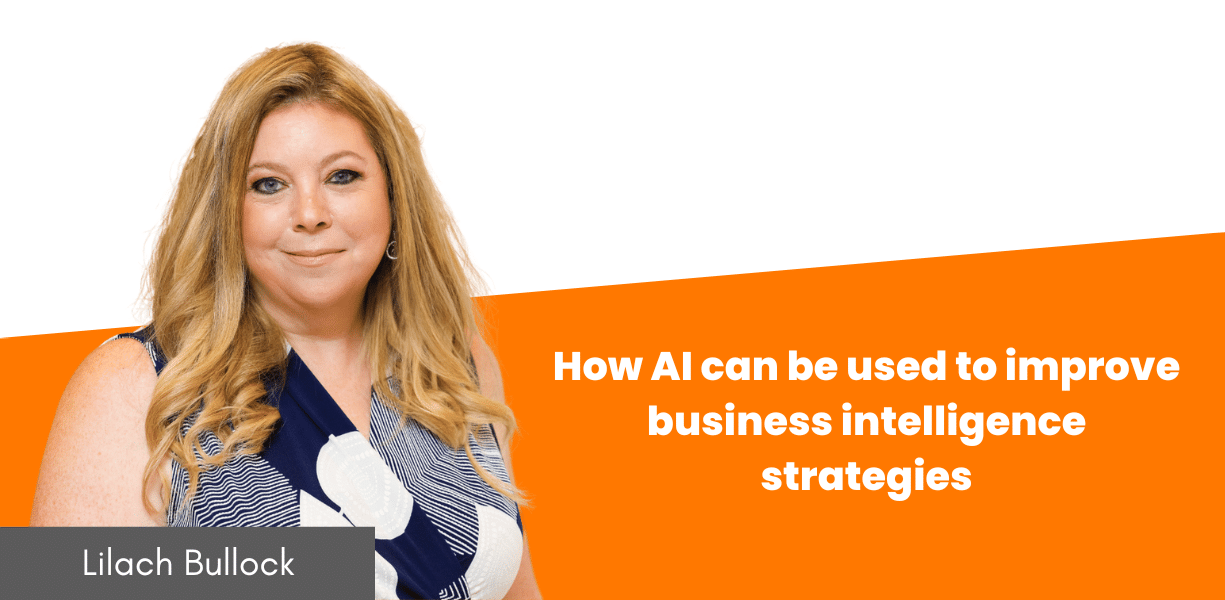Follow Lilach

How AI can be used to improve business intelligence strategies
In today’s fast-paced and data-driven world, businesses are constantly seeking ways to gain a competitive edge and make informed decisions based on accurate and timely information. Artificial Intelligence (AI) has emerged as a powerful tool for improving business intelligence strategies, enabling organizations to streamline information-gathering processes, forecast future trends, understand customer feedback, and mitigate potential risks. By leveraging AI technologies and algorithms, businesses can unlock new opportunities, enhance decision-making capabilities, and achieve long-term success in today’s dynamic business environment. This article explores the various ways in which AI can be used to improve business intelligence strategies and highlights the benefits of incorporating AI into organizational processes.
AI’s Role in Streamlining Information Gathering for Business Intelligence
In today’s data-driven world, businesses are constantly seeking ways to gather and analyze vast amounts of information to make informed decisions and gain a competitive edge. Artificial Intelligence (AI) has emerged as a powerful tool for streamlining information-gathering processes, enhancing business intelligence strategies, and driving organizational success.
One of the key advantages of AI in business intelligence is its ability to automate and expedite data collection. With AI-powered tools, businesses can efficiently collect and process data from various sources, such as social media, customer interactions, market trends, and internal databases. Through natural language processing and machine learning algorithms, AI systems can extract valuable insights, trends, and patterns from this data that would have been difficult or time-consuming for humans to accomplish.
By automating data collection and analysis, AI allows businesses to access real-time information, enabling faster decision-making and more agile responses to market changes. This not only saves valuable time and resources but also empowers businesses to make data-driven decisions that are more accurate, timely, and aligned with their goals.
Using AI to Forecast Future Trends and Business Outcomes
Forecasting future trends and business outcomes is a critical aspect of manufacturing business intelligence. AI algorithms can analyze historical data, market trends, and other relevant factors to make accurate forecasts and predictions. By leveraging machine learning and deep learning techniques, AI systems can identify patterns, correlations, and anomalies that may not be evident to human analysts.
These AI-powered forecasting capabilities enable businesses to anticipate customer demands, optimize inventory management, and make strategic decisions regarding product development, pricing, and marketing campaigns. For example, AI algorithms can analyze historical sales data to predict future demand patterns and optimize production levels, reducing the risk of overstocking or understocking.
Moreover, AI can also assist in scenario modeling and risk assessment. By simulating various scenarios and predicting their outcomes, businesses can proactively identify potential risks and develop mitigation strategies. This enables them to make well-informed decisions that can minimize financial losses and maximize opportunities.
Understanding Customer Feedback and Market Sentiment with AI-powered Tools
Customer feedback and market sentiment play a crucial role in shaping a business’s success. AI-powered tools can analyze large volumes of customer feedback, including online reviews, social media interactions, and customer surveys, to gain valuable insights into customer preferences, sentiments, and expectations.
Natural language processing and sentiment analysis techniques enable AI systems to understand and extract meaningful information from unstructured customer feedback data. By analyzing this data, businesses can identify common pain points, uncover emerging trends, and gain a deep understanding of customer needs and expectations.
This AI-powered analysis of customer feedback can drive various business initiatives, such as product improvement, customer service enhancements, and targeted marketing campaigns. By incorporating customer feedback into decision-making processes, businesses can foster stronger customer relationships, improve brand loyalty, and achieve a competitive advantage in the market.
Utilizing AI to Identify and Mitigate Potential Business Risks
Identifying and mitigating potential risks is a critical aspect of sound power bi consultation. AI can help businesses identify and monitor risks across different areas, such as operational, financial, and reputational risks.
AI-powered risk management systems can analyze vast amounts of data, including internal and external factors, industry trends, and historical data, to identify risk patterns and potential vulnerabilities. Machine learning algorithms can continuously learn and adapt to new risk factors, enabling businesses to stay ahead of emerging risks and take proactive measures to mitigate them.
Moreover, AI can aid in fraud detection and prevention. By analyzing patterns of fraudulent activities and anomalies in financial transactions, AI systems can help businesses identify suspicious activities and take appropriate action in real time. This not only protects businesses from financial losses but also safeguards their reputation and customer trust.
Conclusion
Artificial Intelligence (AI) presents immense opportunities for businesses to enhance their business intelligence strategies and gain a competitive edge in today’s fast-paced and data-driven world. By leveraging AI-powered tools and algorithms, businesses can streamline information-gathering processes, forecast future trends and outcomes, understand customer feedback and market sentiments, and identify and mitigate potential risks.
The benefits of incorporating AI into business intelligence strategies are manifold. AI enables businesses to make data-driven decisions, respond rapidly to market changes, improve customer satisfaction, and minimize risks. The ability to automate data collection, analysis, and forecasting processes saves time and resources, enabling businesses to focus on crucial decision-making tasks.
However, it is important to acknowledge that AI is not a panacea for all business challenges. It should be used as a complement to human intelligence, with humans working alongside AI systems to interpret and act upon the generated insights. Additionally, ensuring ethical and responsible use of AI is crucial to building trust and maintaining customer confidence.

Follow Lilach















